There are many bridges along the Seine River in Paris, but the most beautiful of them all is the Alexandre III Bridge.
The bridge, which was built in conjunction with the Paris Expo, has been frequently featured in various movies, so before you know it, you may have seen it at least once.
It also has a reputation for its beautiful night views, and the route from the Champs-Elysées to the Alexandre III Bridge is a great way to enjoy the night scenery.
In this article, I would like to introduce you to the Alexander III Bridge, which is full of such attractions.
Pont Alexandre III
Practical information
Pont Alexandre III
Address:Pont Alexandre III, 75008 Paris, France
History and Features
History
It was built in 1900 to coincide with the Paris World Exposition.
In 1896, Czar Nicholas II laid the foundation stone for the bridge.
The construction work was done from 1897 to 1900.
The building was decorated in the Beaux-Arts and Art Nouveau styles that were popular at the time.
This bridge was donated by Czar Nicholas II, the last emperor of Russia, as a sign of friendship between Russia and France.
It is said that Alexander III, the father of Nicholas II, gave the name to the alliance with France.
Features
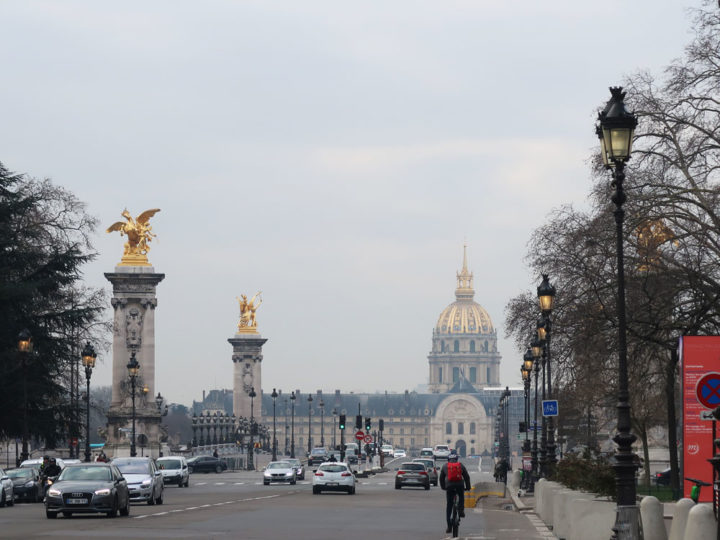
It is designed to be low so as not to obstruct the view of the Invalides.
It is designed in such a way that if you look at it from a little distance, you would not think that there is a bridge there.
Three lanes in each direction (two car lanes and a sidewalk) with very wide sidewalks on both sides for easy walking.
It is a 154-meter-long bridge connecting the Champs-Elysées and the Invalides, and is said to be the most beautiful of all the bridges over the Seine.
Four large pillars
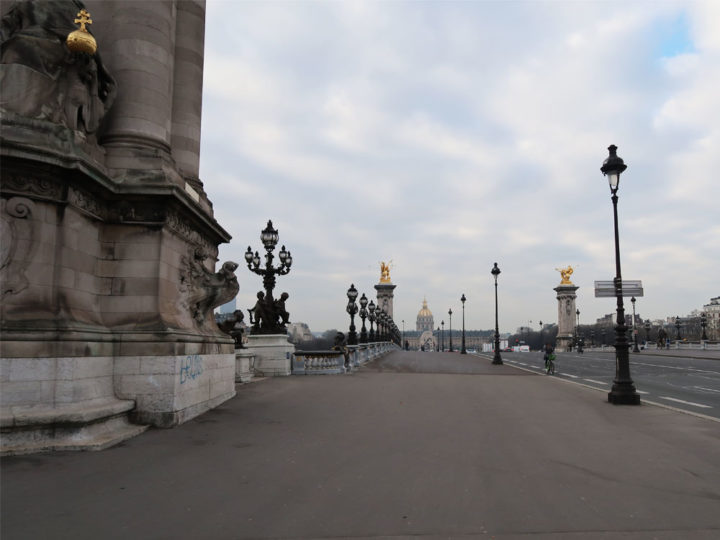
The most distinctive feature of the Alexander III Bridge is the four large pillars on each side.
Each one is about 17 meters high and has four golden statues placed on top of the pillars.
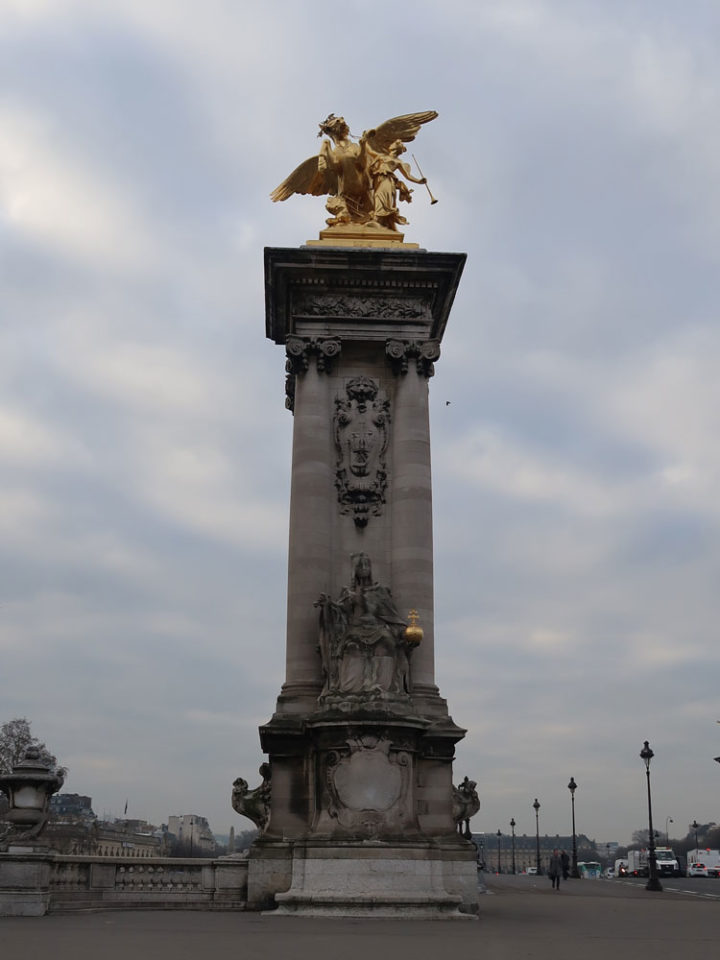
The statues are of a winged horse (Pegasus) and a goddess, representing art, agriculture, commerce, and war.
Not only is it a gorgeous decoration, but it also serves as a weight to keep the bridge stable.
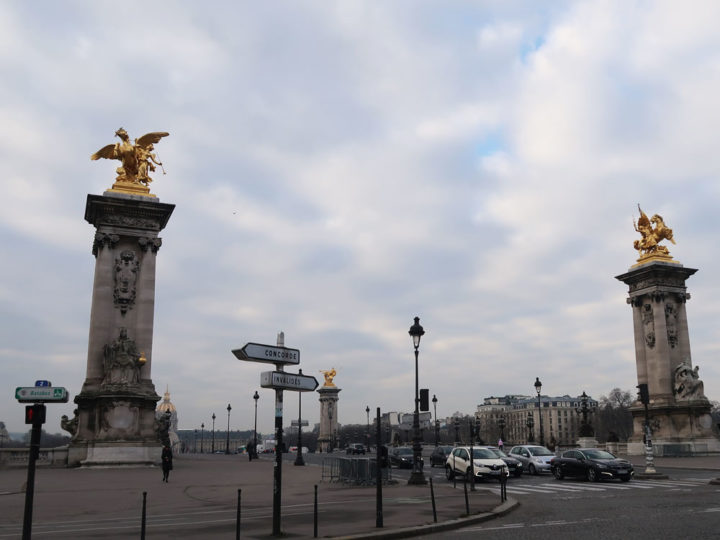
The gold statue on the bridge on the right bank is the work of Emmanuel Frémiet (1824-1910).
Emmanuel Frémiet is a very famous sculptor who specializes in animal sculptures, and his works have been exhibited in the statue of St. Michael at Mont Saint-Michel, the Musée d’Orsay, and the Museum of Natural History in Paris.
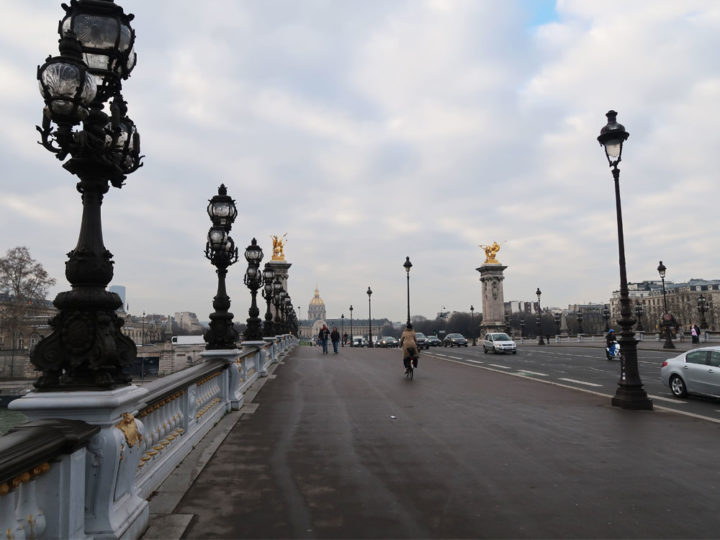
The gold statues on the bridge on the left bank are the work of Pierre Granet (1842-1910) and Clement Steiner (1853-1899).

Looking from the Invalides, the gold statue on the right column is by Pierre Granet.
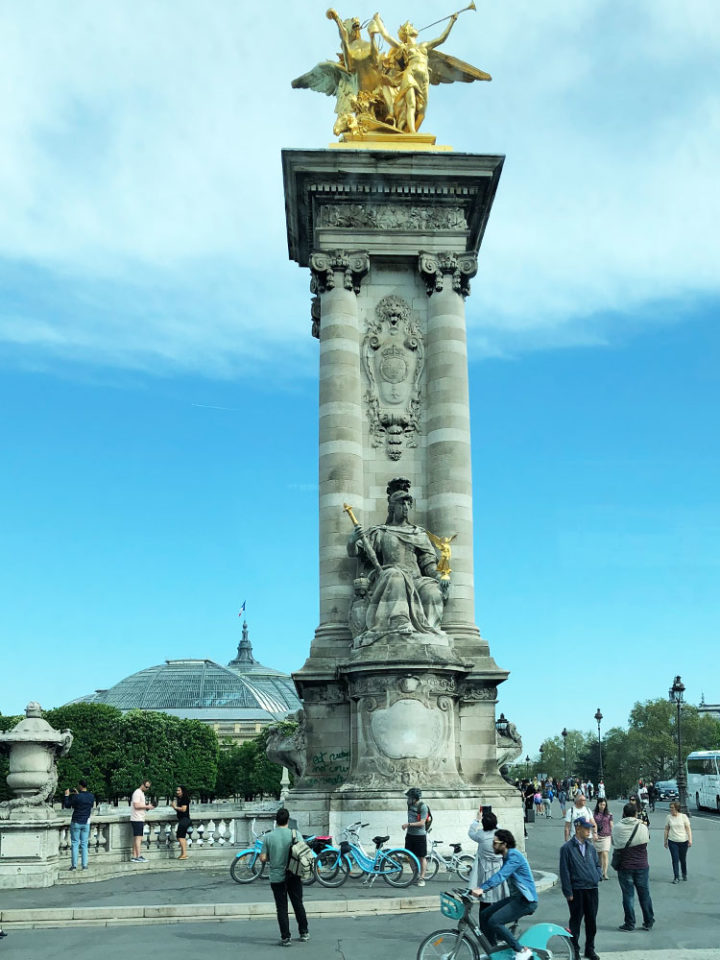
The gold statue on the pillar on the left side facing the Invalides is the work of Clement Steiner.
The same theme, but created by different sculptors, is one of the highlights.
Nymphs
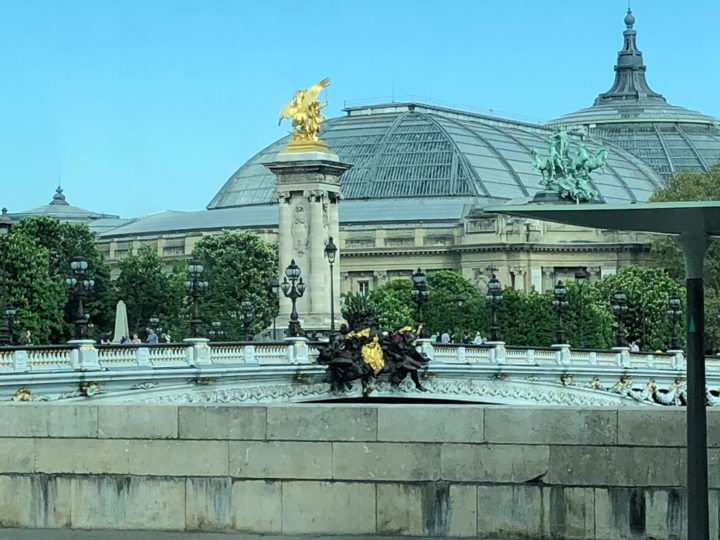
In the center of the bridge, two bronze statues are displayed facing the Seine River.
The statue on the upstream side is the Nymphs of the Neva.
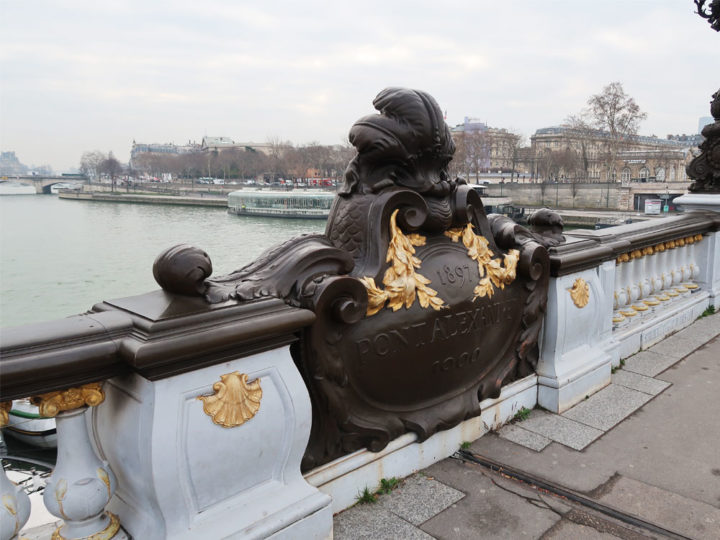
This one is made in honor of the river in St. Petersburg, Russia.
Another statue on the downstream side is the Nymphs of Seine.
This one is said to have been created in honor of the Seine River.
Illumination
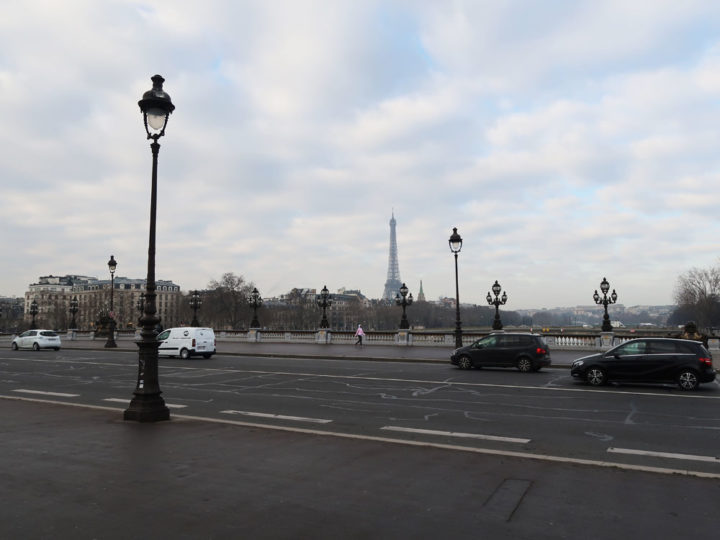
The lighting on the bridge is one of the features of the Alexander III Bridge.
They are placed at short intervals and in numerous locations.
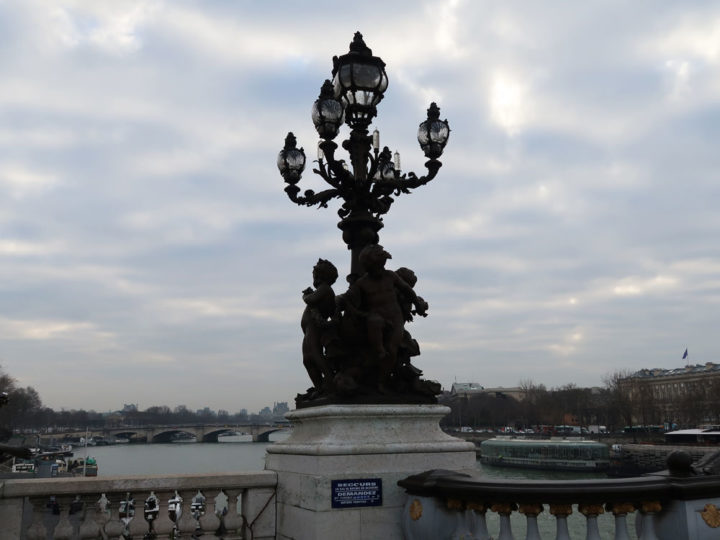
The lighting is in the Art Nouveau style, which was popular at the time.
It features a design that incorporates plant leaves.
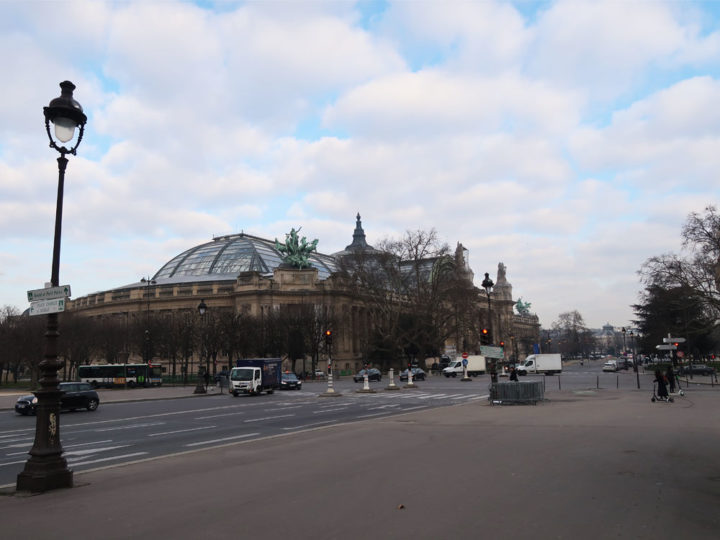
At that time, it was said to be the era of iron and glass, and this characteristic is evident not only in the lighting of the bridge, but also in the Grand Palais, which was built at the same time.
Statue of Lion
A statue of a lion led by a group of children is erected at the entrance of the bridge.
The statue on the right bank is a work by Georges Gardet (1863-1939), and is said to represent the “Age of Charlemagne” (8th-9th century) on the upstream side of the right bank, and the “Modern Age” on the downstream side.
The statue on the left bank is the work of Jules Dalou (1838-1902) and is said to represent the “Renaissance era” (16th century) on the upstream side of the left bank and the “Louis XIV era” (17th-18th century) on the downstream side.
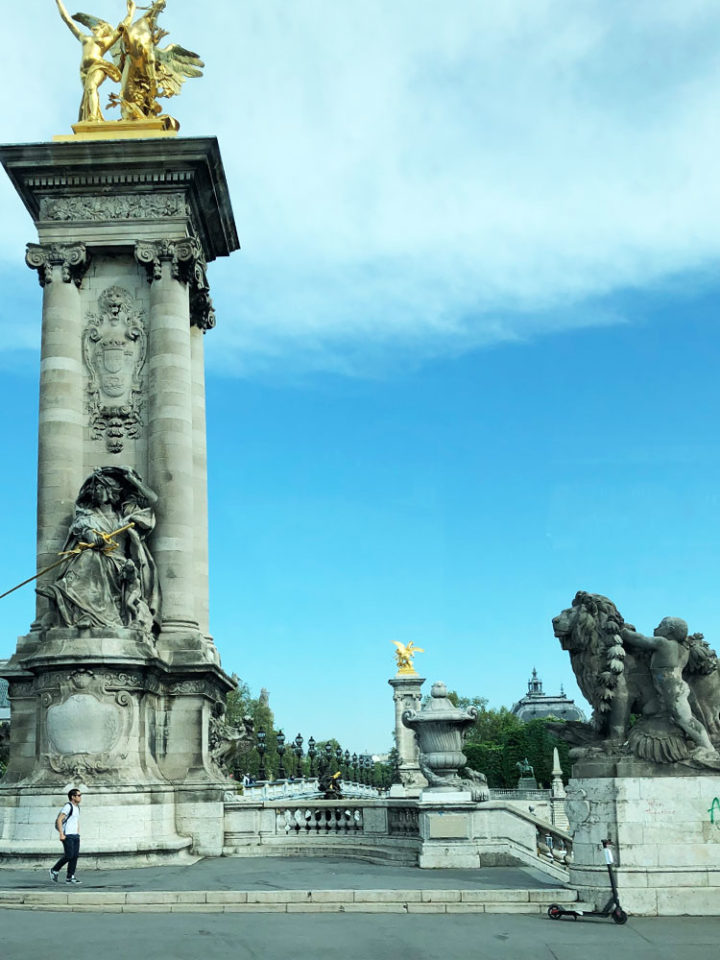
This lion is from the Renaissance era.
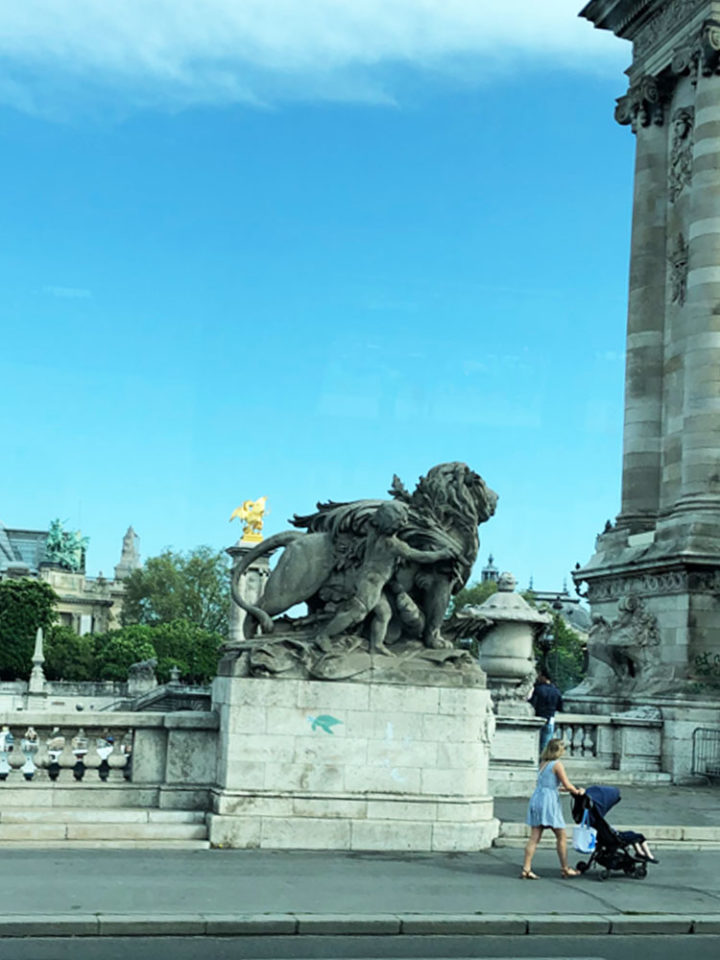
This one represents the Louis XIV era.
Eiffel Tower from Alexandre III Bridge
The view of the Eiffel Tower from the Alexandre III Bridge is very impressive.
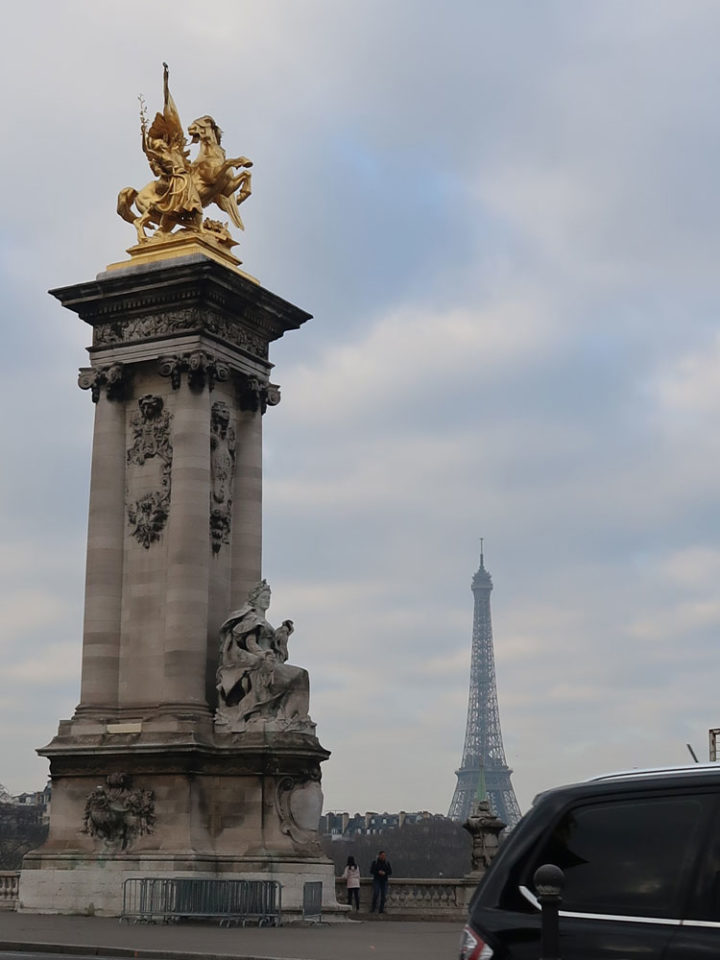
A pillar and the Eiffel Tower on the upstream side of the right bank.
Unfortunately, there were still clouds in the sky that day, but on a good day you can take beautiful pictures.
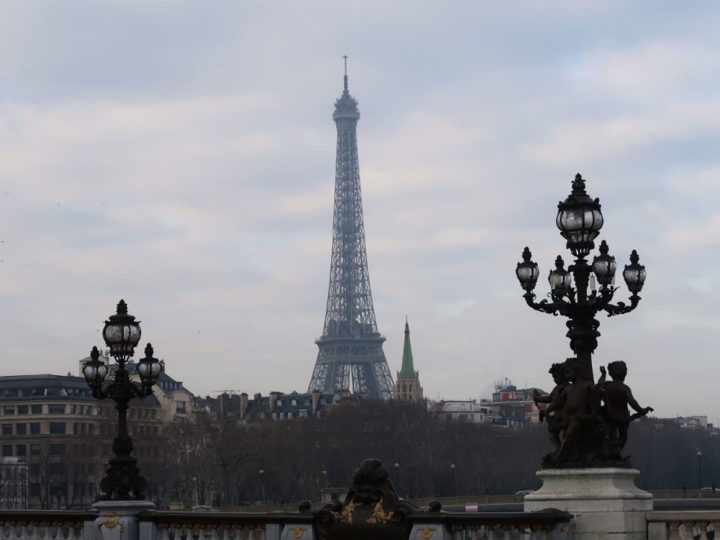
Taken from the middle of the bridge.
There are no tall buildings blocking the view, which is the charm of Paris.
I hope you will try to take a picture of the wonderful Eiffel Tower at the Alexandre III Bridge.
Summary
I thought the Alexandre III Bridge was just an ordinary gorgeous bridge over the Seine, but it has a lot of history and many artists’ works are scattered here and there.
If you take the bus, it will only take you a few minutes to get to this place, but if you look at each piece of art, you will enjoy it so much that you will forget the passage of time.
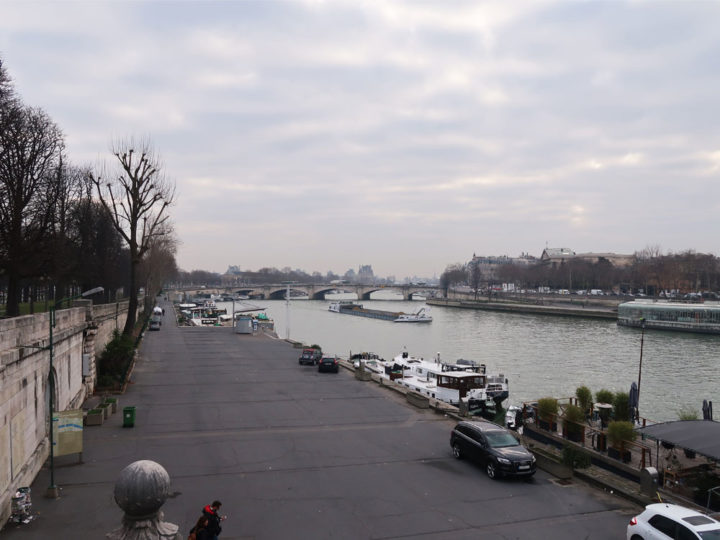
You can also go down to the Seine from the side of the bridge, which is very suitable for strolling.
You can walk from the Champs-Élysées, so please include it in your sightseeing route and come to see the most beautiful bridge on the Seine.
If you are able to go out at night, please stop by and see the illuminated Alexander III Bridge, which is even more beautiful.
Thank you again for reading to the end of this article.

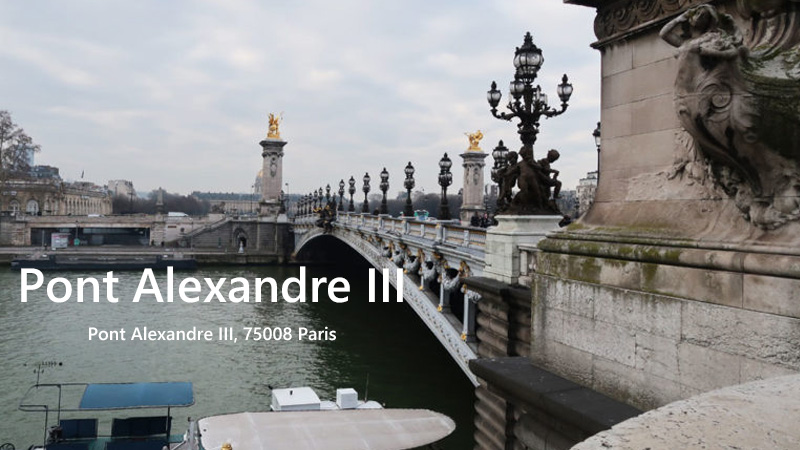


コメント